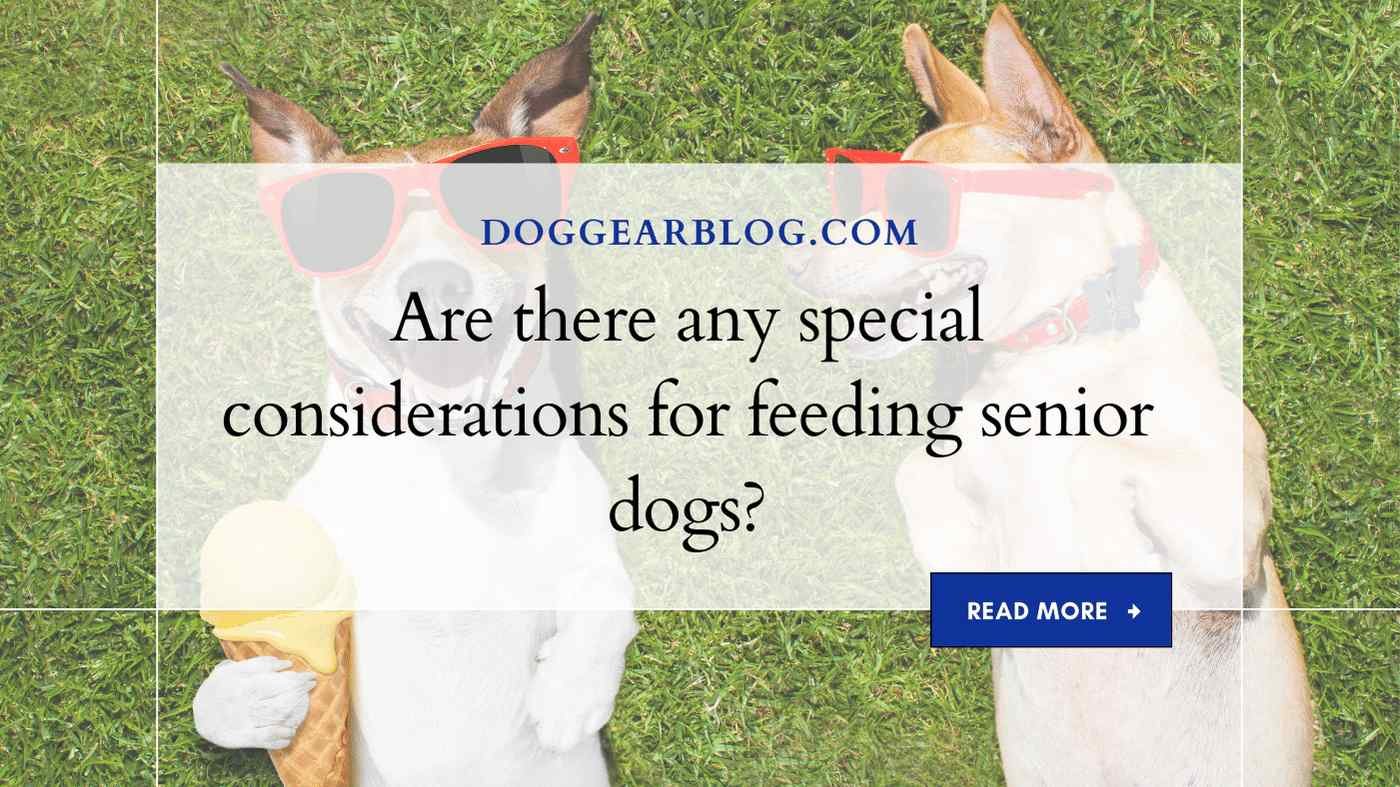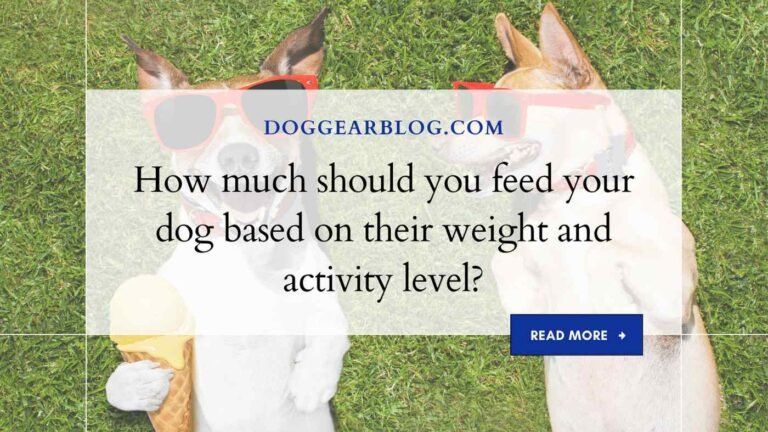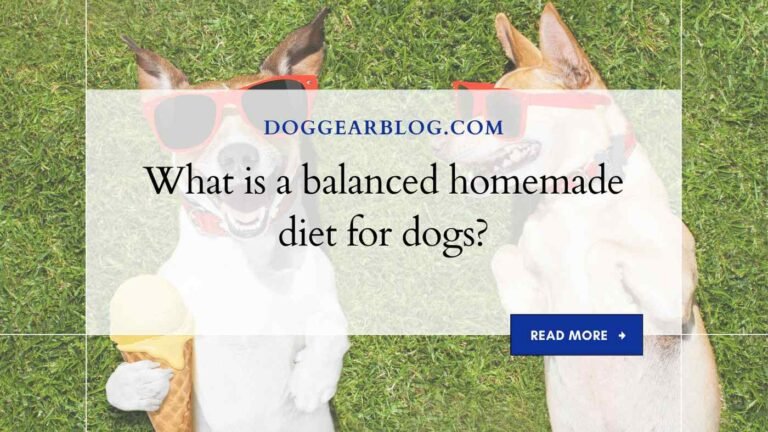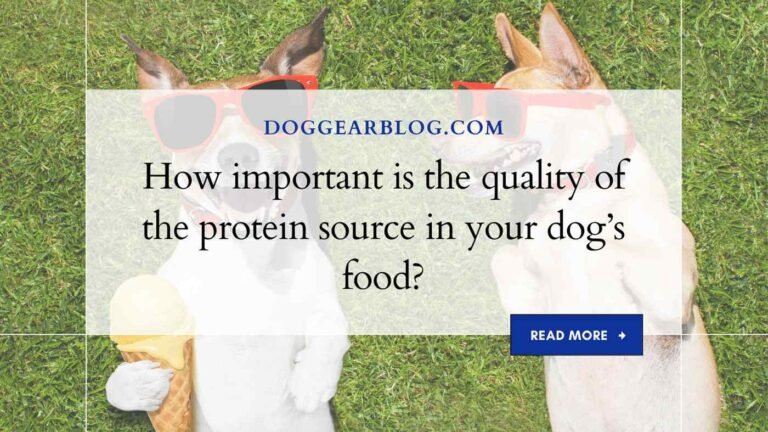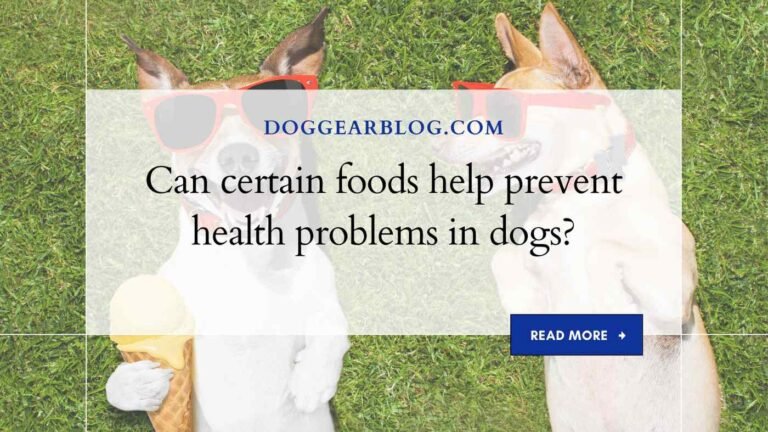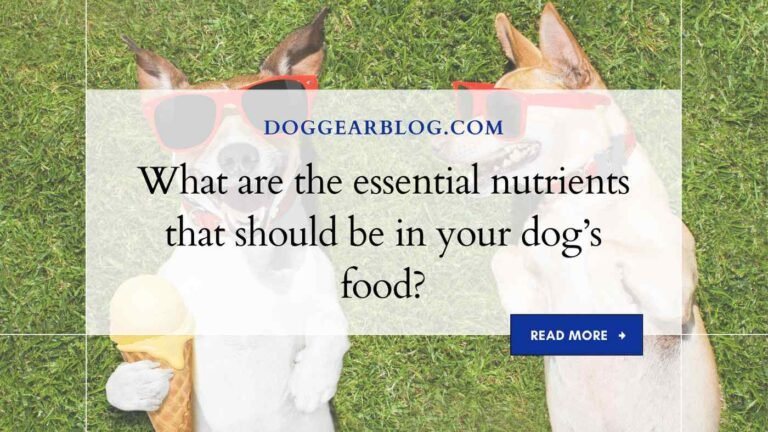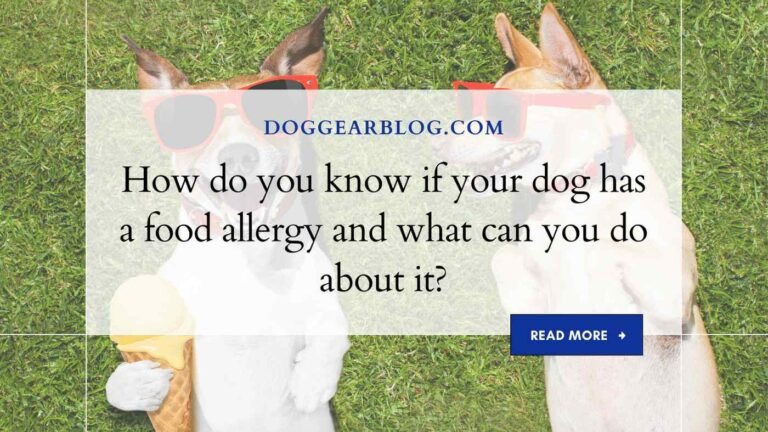Are there any special considerations for feeding senior dogs?
As our furry companions get older, it’s important to pay close attention to their dietary needs. Just like humans, senior dogs require a different kind of nutrition than they did in their younger years.
Whether you have an aging pup or are considering adopting one who’s already reached their golden years, it’s crucial to understand the special considerations that come with feeding senior dogs. In this blog post, we’ll explore everything you need to know about providing a well-balanced diet for your wise old friend. So grab a cup of tea and let’s dive in!
What is the Optimal Age for a Senior Dog to Be Separated from their Previous Families?

Aging is a natural process that affects all creatures, including dogs. As a dog ages, their body starts to produce less protein and fat which can result in decreased energy levels and mobility. Feeding a senior dog their regular meals and daily activity should continue as normal, but it’s important to adjust the number of calories they need to maintain their weight.
Too many seniors become overweight or obese due to lack of food consumption, leading to increased health risks such as heart disease and arthritis. Additionally, some medications elderly dogs take can decrease their appetite, so it’s important for their caregivers to monitor them closely if they begin losing weight or not eating on their own.
The Benefits of Canine Companion Animal Ownership
There are several benefits to owning a canine companion animal, including reductions in anxiety and depression symptoms, improved cardiovascular health, and even reduced risk of death. One of the most important factors to consider when feeding a senior dog is ensuring they are getting the right diet.
A high-quality diet will provide all the nutrients they need while helping to keep their teeth and gums healthy. There are also specific diets designed specifically for seniors, such as senior diet recipes or holistic pet food options. While there aren’t any universal guidelines for feeding a senior dog, Considering their unique needs it’s important to consult with a vet or pet nutritionist before making any changes to their diet.
The Identification and Evaluation of Senior Dogs
When it comes to feeding a senior dog, there are a few things to keep in mind. First and foremost, make sure the food your pet is eating is appropriate for its age and health condition. Second, be sure to give your pet enough fluids each day – particularly if it’s been having trouble drinking on its own.
And finally, don’t forget the importance of regular veterianry care – including check-ups and vaccinations – which will help keep your senior dog as healthy as possible.
If you’re looking for a good food specifically designed to help seniors, we recommend Purina Senior Livestock Diets.
General Feeding Guidelines for Senior Dogs

There are a few general feeding guidelines that apply to senior dogs. Feed them small, frequent meals, and offer a variety of food options. Also, provide plenty of water and especially encourage them to drink when they appear thirsty.
Older dogs may be more prone to getting bored with their diet, so vary the type and quantity of food available to them frequently. Don’t overfeed your senior dog; Obesity can increase the risk of serious health problems such as heart disease or stroke in older dogs.
Some ideas for nutritious senior dog food include:
- Fresh meat or poultry (skin and all)
- Beef or lamb
- Fish, including salmon, sardines, and tuna
- Vegetables and fruits
- Proteins, such as poultry, fish, or lamb
Special Considerations When Feeding Senior Dogs Diets
Many people believe that all dogs should eat a diet high in fresh, raw meats, but this isn’t always the case for senior dogs. When feedings the diet of a senior dog should be tailored to meet their specific needs and health concerns.
One common misconception about feeding a senior dog a raw diet is that they are healthier this way. While this may be true for some young, fit dogs, it’s not always the case for older dogs. Many seniors suffer from joint problems and bone loss which makes digesting and absorbing food difficult.
A senior dog’s stomach also can’t produce as much hydrochloric acid, so they may have trouble breaking down proteins in raw meats. The best diet for a senior dog depends on their specific medical history and condition.
Many vets now recommend feedingdogs tailored low-fat diets that are supplemented with healthy fats and other nutrients such as vitamins and minerals. Ingredient choices vary depending on the dog’s age, medical conditions, weight and activity level but might include: cooked meat (less than 30% fat), low-fat canned food, boiled or mashed potatoes with butter or margarine, fortified pet foods like Hills Science Diet or Royal Canin Veterinary Diets OTINERIX Healthy Weight® Kitten formula*, plus water or broth as needed. *Not recommended for pregnant females or growing puppies .
Feeding a senior dog a high-quality diet that includes fresh, raw meat is still a good idea, but it’s important to tailor the diet to meet their specific needs.
When should I introduce a ketogenic diet to my senior dog?
There are a few things to keep in mind when introducing a ketogenic diet to your senior dog. First, it’s important to give them plenty of water and good quality food while on the diet. In addition, age and general health conditions can play a role in how well your senior dog responds to the ketogenic diet. Be sure to monitor their blood glucose levels closely and make any necessary adjustments as needed.
If your senior dog is healthy, responds well to food and water, and has stable blood glucose levels, introducing them to the ketogenic diet may be a great way to provide them with the best possible long-term health.
How much should I feed my senior dog on a ketogenic diet?
Senior dogs can benefit from a ketogenic diet, which is a high-fat, low-carbohydrate diet. To get the most out of a ketogenic diet for your senior dog, follow these tips:
1] Start with a small amount of food and gradually increase the amount over time.
2] Feed only once or twice per day instead of three or four times per day.
3] Try to find canned or packaged keto food rather than homemade food because it’s usually lower in calories and more nutritious.
4] If your dog is overweight, adjust the portion size accordingly to make sure they are eating enough fat and protein.
Should I make any other changes to my senior dog’s diet?
In general, pet owners should follow the same feeding regulations as they would for their younger dogs – providing the food is properly sized and calorie-dense to meet their needs. However, there are a few caveats that may be important when catering to senior dogs. For one thing, they are often more prone to developing dental problems, so diets high in fiber and calcium may be beneficial.
Additionally, obese senior dogs may benefit from reduced caloric intake or weight-loss supplements, as chronic overfeeding can lead to obesity and other health complications. Some seniors may suffer from specific allergies or digestive complaints that necessitate modification of the diet altogether.
If a senior dog is gaining weight or doesn’t seem to be doing well on his current diet, it may be worth speaking with a veterinary specialist to get a more tailored recommendation.
Conclusion
As we all know, as our dogs age they become more susceptible to various health problems. One of the most common is cancer, and while there is no guarantee that feeding a senior dog a special diet can prevent or delays cancer development, it certainly cannot hurt.
In addition to providing essential nutrients their body may be missing, a high-quality senior diet also includes plenty of alternative protein sources, antioxidants, and other healthy ingredients that can help promote overall health and wellbeing in older dogs. While dietary adjustments will vary from dog to dog, considering what might be helpful for your senior pooch is always a good idea.
